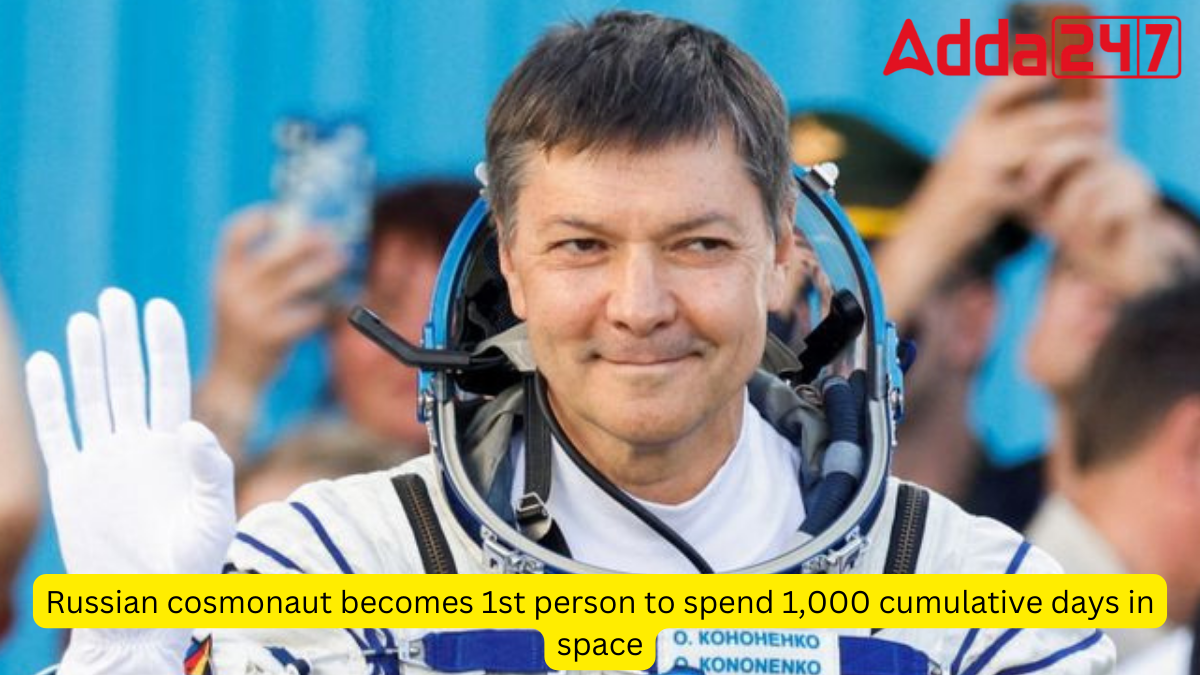Roscosmos state corporation cosmonaut Oleg Kononenko, who currently works at the International Space Station has booked a record of 1,000 days for the first time in the world in terms of total spaceflight duration.
Achievement of This Mission
His current trip to the ISS began Sept. 15, 2023, when he launched alongside NASA astronaut Loral O’Hara and compatriot Nikolai Chub. He also added that “I fly into space to do what I love, not to set records. I’ve dreamt of and aspired to become a cosmonaut since I was a child,”. The opportunity to fly into space, to live and work in orbit motivates me to continue flying.”
About Oleg Kononenko
Kononenko, a mechanical engineer with an aviation specialty and cosmonaut since 1996, has had a fulfilling career. His family supports him by allowing him to command four Soyuz missions, spend three Christmases and New Years in orbit, and celebrate four off-planet birthdays. Kononenko’s accomplishments are significant for humanity, as space exploration began with several cosmonauts, including Gagarin, Titov, Nikolayev, and Bykovsky. Bykovsky’s five-day solo mission in 1963 remains the longest in history.
In 1965, the United States led in space exploration with a week-long endurance mission dubbed “8 Days or Bust.” Gemini 7’s crew, Frank Borman and Jim Lovell, broke the nearly eight-day record with a 14-day mission, proving humans could survive a round-trip flight to the Moon. Lovell flew three more times, earning 29 days in space by 1970. In 1970, Nikolayev and Vitali Sevastyanov broke Gemini 7’s record with a 17-day orbital stay on Soyuz 9. Georgi Dobrovolski, Vladislav Volkov, and Viktor Patsayev spent 23 days aboard the world’s first space station, Salyut 1, but tragically died due to premature depressurization of their Soyuz 11 capsule during re-entry.
Previous Mission of Oleg Kononenko
His first was Expedition 17 to the ISS, which launched in April 2008. In total, Kononenko has been on five separate missions to the ISS. This is not the first record set by Kononenko. In February 2024, he surpassed the record of 878 days set by his colleague Gennady Padalka for longest amount of time in space. Unlike the Roscosmos cosmonauts, NASA astronauts typically spend no longer than six months aboard the ISS before they’re rotated out for a new crew. One notable exception was Frank Rubio, who spent 371 days in the space before returning to Earth last September after his original six-month mission at the ISS was extended by an additional six months.
A Stepping Stone for the Future
While Kononenko’s record was not achieved in a single mission, the cumulative impact of 1000 days in space is significant. Understanding how his body and mind adapted to these conditions will be crucial for future long-term space missions, paying the way for deeper exploration of our universe. As Oleg Kononenko returns to Earth, his journey serves as an inspiration for future generations of space explorers.




 India and Israel Begin First Round of FT...
India and Israel Begin First Round of FT...
 India Holds Spot as No. 2 Buyer of Russi...
India Holds Spot as No. 2 Buyer of Russi...
 PM Modi’s Historic Israel Visit: First I...
PM Modi’s Historic Israel Visit: First I...








